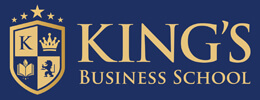In today’s fast-paced and ever-changing business landscape, the role of human resources has become more critical than ever before. Companies recognise that their most valuable asset is their workforce, and effective human resource management is essential for sustained success. From attracting top talent to fostering a positive organizational culture, the objectives of HR are multifaceted and far-reaching.
A well-designed and executed HR strategy can empower organizations to navigate the complexities of the modern workplace. This can drive employee engagement, productivity, and overall business performance. By understanding and aligning with the core objectives of human resource management. Companies can unlock the full potential of their human capital and gain a competitive edge.
Let’s explore the primary objectives of human resource management.
Talent Acquisition and Retention
One of the core objectives of human resource management is the recruitment, retention, and attraction of the best personnel for the company. It involves creating plans for finding and employing qualified applicants who fit well with the job role and the company’s culture. Retention initiatives, such as competitive compensation and benefits packages, career development opportunities, and work-life balance programmes, are essential to keeping valued employees engaged and committed. HR must also take action to maintain the motivation, engagement, and dedication of current staff members to the values of the company.
Talent Acquisition and Retention
Another vital objective is to facilitate the professional growth and development of the employees. HR is responsible for identifying training needs, designing and implementing training programmes, and creating opportunities for employees to enhance their skills and knowledge. Organizations can improve productivity, foster innovation, and prepare their workforce for future challenges by investing in employee development.
Employee Motivation and Engagement
One of the key objectives of human resource management is employee motivation and engagement. Engaged and motivated employees are the driving force behind a company’s success. HR plays a crucial role in creating an environment that inspires and energizes employees. It involves implementing initiatives that promote job satisfaction, recognition, and a sense of purpose. From effective communication strategies to employee wellness programmes, HR must cultivate an environment that fosters motivation, commitment, and a sense of belonging.
Fostering a Positive Organizational Culture
Developing and maintaining a positive organizational culture is one of the core objectives of human resource management. HR plays a pivotal role in shaping and nurturing the organizational culture. It involves promoting values, behaviors, and practices that align with the company’s mission, vision, and goals. A positive and inclusive culture can boost employee morale, engagement, and job satisfaction, ultimately contributing to the organization’s success.
Compliance and Risk Management
Ensuring compliance with labor laws, regulations, and industry standards is one of the critical objectives of human resource management. It involves developing and implementing policies and procedures related to employment practices, workplace safety, employee rights, and privacy. HR also plays a key role in identifying and mitigating potential risks associated with workforce management.
Performance Management and Employee Relations
Effective performance management is another essential objective of HR. It involves establishing fair and transparent systems for evaluating employee performance, providing feedback, and recognising and rewarding outstanding contributions. HR also plays a crucial role in managing employee relations, addressing grievances, and fostering open communication between employees and management.
Strategic Workforce Planning
HR professionals must align their efforts with the organization’s overall business strategy. It involves analyzing current and future workforce needs, identifying skill gaps, and developing plans to ensure the right talent is in place to achieve the company’s objectives. As one of the critical objectives of human resource management, strategic workforce planning enables organizations to proactively address workforce challenges and maintain a competitive advantage.
By focusing on these key objectives of human resource management, HR executives and managers can contribute significantly to the success and sustainability of an organization. Effective HR practices can drive employee engagement, productivity, and ultimately organizational performance.
The MBA in Human Resource Management and Psychology offered by King’s Business School is designed to revolutionize human welfare practices with a holistic and empowering approach towards the objectives of human resource management. The programme gives students the opportunity to engage with a cohort of students that popularize growth and a community of teachers that promote development, making their holistic enhancement inevitable. This programme is an excellent choice for students who are keen on the two disciplines and envision themselves as successful HR managers leading organizational growth.
Investing in this programme could be the start of a career of a lifetime at a world-class business school.





